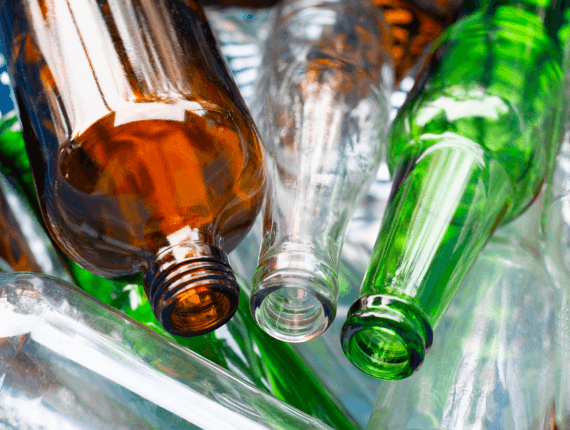Poland plans to introduce a deposit system on January 1, 2025, becoming the 17th country in the European Union to opt for such a solution. At the end of last year, Romania introduced such a system, achieving impressive results—over 20 million packages were collected in the first months after its implementation. Will Poland, having the second-largest packaging market in the EU, be able to repeat this success?
How does the deposit system work in Romania?
Romania introduced the deposit system on November 30, 2023, as the 13. A country in the EU. The recycling rate increased from 11.3 percent to 93 percent in the first months after implementation. The system is mandatory for all companies producing, importing or selling beverages in single-use bottles and includes nearly 80,000 collection points – on average, one point per 240 inhabitants. Up to 7 billion beverage containers are to be returned there annually. The deposit is 0.50 Romanian leu (about 44 grosz).
The RetuRO consortium manages the deposit system in Romania and integrates intelligent waste management solutions, enabling efficient data collection, reporting, and document management. As a result, Romania achieved very good results in a short period of time—2.2 million packages were collected in January 2024, and 18 million were already collected in February.
– The system covers various packaging materials and products, including spirits bottles. This means that the Romanian solution is one of the largest implementations in the area of circular economy in Europe – says Marek Nowakowski, General Director of Exorigo-Upos SRL Romania.
Romania integrated the deposit system using Sensoneo’s smart waste management software. It allows, among other things, entity registration, data collection, ERP (Enterprise Resource Planning) systems, reporting, and document management. Sensoneo currently operates in five European countries: Romania, Slovakia, Malta, Ireland, and Hungary.zech.
How will it work in Poland?
The deposit system in Poland will cover PET bottles with a capacity of up to 3 litres, glass bottles with a capacity of up to 1.5 litres, and metal cans with a capacity of up to 1 litre. A deposit of 50 groszy will be added to the price of these products, which the consumer will recover when returning the packaging.
The new rules will oblige manufacturers, importers and brand owners to collect them and achieve minimum levels of separate collection. These indicators will increase from 77 percent in 2025 to 90 percent in 2029. If these limits are not met, a product fee will be imposed on businesses.
– Introducing this system will make it possible to collect at least 90% of the packaging placed on the market, significantly reducing the pressure on the environment and reducing littering. Currently, only 43 percent of PET bottles are collected in municipal systems, of which only 20 percent is reused to produce beverage packaging. The deposit system in our country can, as in Romania, revolutionise these statistics – adds Marek Nowakowski, General Director of Exorigo-Upos SRL Romania.
In Poland, one collection point is for about 1,033 inhabitants – 4 times less than in Romania. This can affect people’s motivation to return empty packaging and make the result in the first months not as high as there. However, unlike the Romanian system, two system operators will be operating in Poland – Zwrotka, established by the Biosystem Group and the Polish Chamber of Commerce for Environmental Protection, and PolKa, created by the Recover the Environment Foundation.
Retail stores will be obliged to collect packaging. Those with an area of more than 200 m² will be obliged to accept bottles and cans, while smaller retail outlets can voluntarily join the system. Importantly, each entrepreneur placing products on the market will have the opportunity to appoint their entity dealing with packaging collection. The new regulations do not specify how they will be collected – each entity involved in their collection will be free to choose the method. It is worth noting that the consumer will not have to show proof of purchase when returning a bottle or can.
The first stores in Poland have already introduced collection machines. Most were created in the Lidl chain, where 21 bottle vending machines were made between 2023 and 2024. The customer receives five cents as a discount coupon when returning the bottle. The company reported that in the first month, customers received PLN 100,000 in this way, exchanging two million bottles for coupons. Carrefour has launched devices for collecting cans and plastic bottles under PETfur in 10 locations. Vending machines have also been introduced in Biedronka in four stores. They give five groszy as a voucher, but not more than PLN 50, meaning up to a thousand bottles can be returned. The voucher can only be used in the store where it was issued.
Currently, discussions on various aspects of Poland’s deposit system are ongoing. It is not yet entirely determined whether and on what basis VAT will be added to the deposit amount and how it will be settled throughout the supply chain. In addition, companies will have to find appropriate rooms and organise services to collect deposit packaging, which requires them to be adequately prepared. Some entrepreneurs even called for the implementation of the system to be delayed by a year – to January 1, 2026.
It is worth bearing in mind that the planned regulations aim to create a more effective and environmentally friendly packaging management system. With proper implementation, this system can significantly improve the state of waste management in Poland, contributing to environmental protection.systemu zarządzania opakowaniami. Przy odpowiednim wdrożeniu, system ten może znacząco poprawić stan gospodarki odpadami w Polsce, przyczyniając się do ochrony środowiska.


